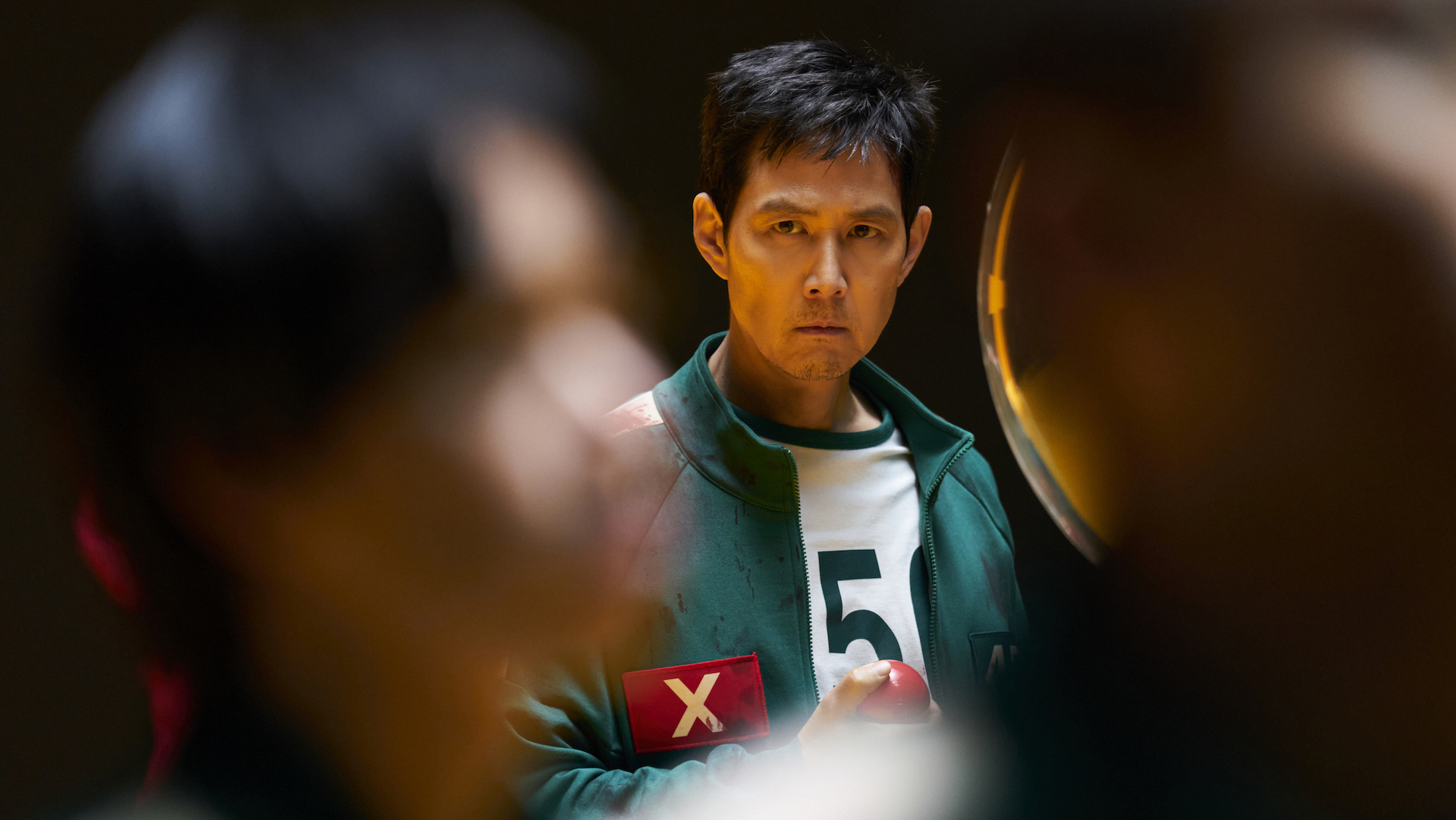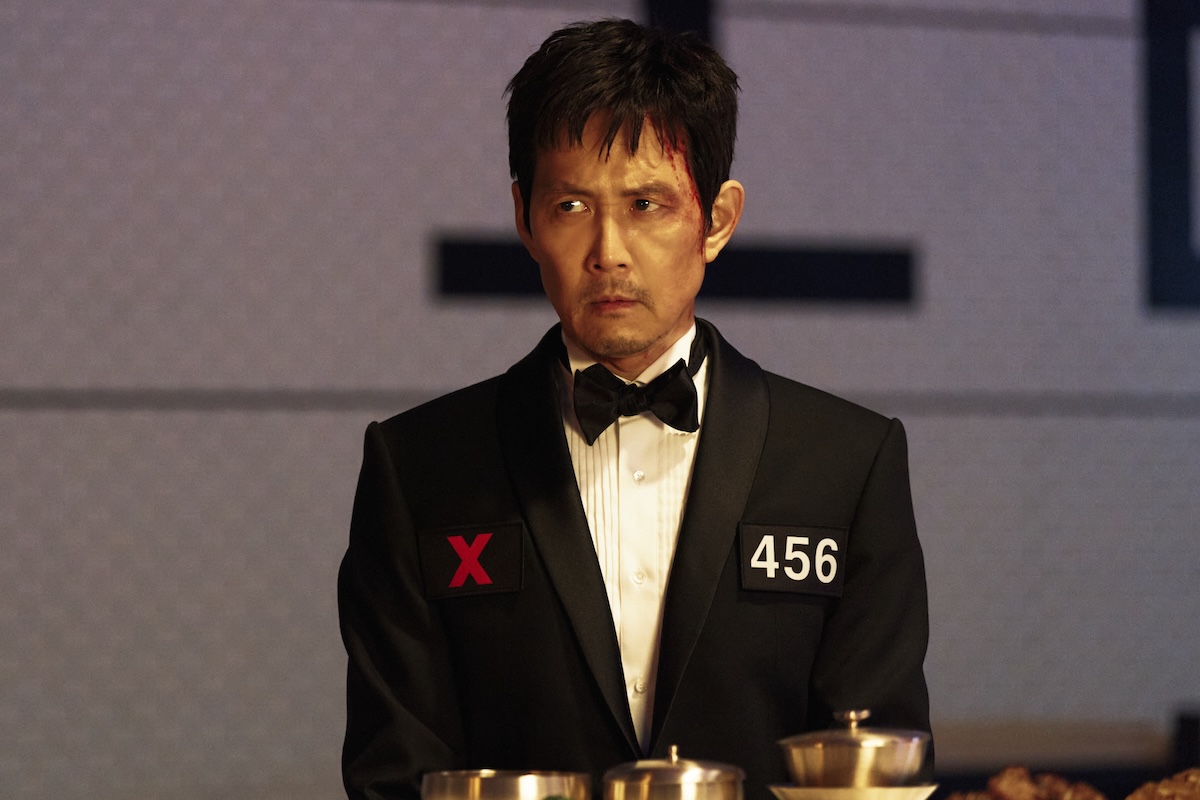[Editor’s Note: The following article contains spoilers for “Squid Game” Season 3, Episode 6, “Humans Are…”]
Unlike a different show that also happened to premiere this week, “Squid Game” didn’t return from its breakout first season with a slew of famous new guest stars. Writer and director Hwang Dong-hyak had ample opportunity to cast just about anyone he wanted in Seasons 2 and 3, considering the seemingly limitless reach of Squid Game’s organizers and the hundreds of new contestants brought in for the 34th competition (as well as the off-screen budget increase given to Netflix‘s global smash hit). But, despite enlisting plenty of Korean stars for the final episodes, “Squid Game” never turned into a celebrity-spotting game of its own; it wasn’t inviting audiences to point at their televisions every few minutes, like the Leonardo DiCaprio meme from “Once Upon a Time in Hollywood,” as plenty of other blockbuster sequels do. (Hwang did have his eye on Leo, though.)
So as the series finale ticked down toward its closing credits, there was no reason for fans to expect a cameo — especially from two-time Academy Award-winning actor, Cate Blanchett. But there she is, playing ddakji in a Los Angeles alley against a dude who’s clearly down on his luck, since she’s busy slapping the absolute shit out of him.
What gives? Well, even with proper context, the meaning behind Blanchett’s appearance is a matter of minor debate. To set the stage, “Squid Game” Season 3 ends with the Front Man, Hwang In-ho (Lee Byung-hun), traveling to Los Angeles to deliver Seong Gi-hun’s (Lee Jung-jae) personal effects to his daughter (including Gi-hun’s remaining winnings, which In-ho took from their hotel hiding place and loaded onto a bank card). After dropping off the money and game uniform, the conflicted Front Man drives away.
Then, stopped at a red light, he hears a familiar sound. In-ho rolls down his window and looks into the alley, where a man in ragged clothes is playing ddakji with a woman (Blanchett) in a pristine gray suit. To fans, it’s immediately clear what’s happening: The woman is a Squid Game recruiter, and she’s got a potential new player on the hook.
The mark loses the round, she looks at him, shrugs, and then slaps him across the face. While he’s doubled over from the blow, the woman looks toward the street and sees In-ho watching her. His expression is static — ambiguous — but she recognizes him (or, at least, something about him) and smiles. Then the man challenges her to another round, she says, “As you wish,” and goes back to her game.
In-ho finally reacts, but he doesn’t give away much. He looks down, either in contemplation, disgust, or a mixture of both. Then the window rolls back up, and he drives off. The camera swings away from his car and back to Blanchett, as she wins another game. One last slap lands right as scene cuts to black.
To some viewers, the cameo hints at how Netflix may choose to continue “Squid Game.” Perhaps a new season or spinoff series will focus on an American version of the games, with Blanchett’s character playing the part of a pivotal recruiter. So far, the narrative has only acknowledged the South Korean edition, but now we’re left to wonder how many there are and who else is running them. In theory, Netflix could greenlight a new “Squid Game” spinoff based in different territories around the globe.
But Hwang Dong-hyak (via Netflix) has only spoken about Blanchett’s cameo as an ending to the original series.
“We thought having a woman as a recruiter would be more dramatic and intriguing,” Hwang said to Tudum, the Netflix-owned blog. “And as for why Cate Blanchett, she’s just the best, with unmatched charisma. Who doesn’t love her? So we were very happy to have her appear. We needed someone who could dominate the screen with just one or two words, which is exactly what she did.”
Hwang added that Blanchett was “amazing at playing ddakji” and “successfully flipped the ddakji on her first try.” But regarding its meaning beyond the series finale, well, he doesn’t go there. (One can assume the Netflix-run website probably isn’t pushing the director to give a firm answer on future plans, but he also told The Hollywood Reporter, “I think the story ended in a manner where it doesn’t need a further story to be told.”)
“Personally, I interpret it as, despite all of the noble efforts of so many people, the world still continues as it was before,” Hwang said to Tudum, adding it’s “truly an ending that fits the [show’s] name.”
On this point, I have to agree. Part of “Squid Game’s” broad appeal is that its anti-capitalist message is so widely applicable. Prior to the cameo, its ending is rooted in the idea that the rich and powerful (wherever they live) treat the proletariat as expendable pieces of entertainment, and they’ll keep doing exactly that until their power structure falls apart. Gi-hun’s last words, right before he sacrifices himself to save an innocent baby, include, “We are not horses” — a direct address to the billionaires who’ve been betting on the Squid Games, demanding they recognize their shared humanity with the players. Even though he can’t complete his final sentence — declaring, before he dies, whether humans are good or evil — his death speaks to the hope Gi-hun maintains for the future.
Naturally, the continued existence of the Squid Games, despite our hero’s extreme efforts to end them, is a more cynical take on what’s next, and seeing the disillusioned Front Man come face to face with an expansion of the games — right here in America, the bastion of unchecked commercialism — only doubles down on the series’ downer outlook. But there’s no reason to think the games will be different — or that they’ll end differently — just because they’re being held somewhere else. Until capitalism’s oppressive grip on society ends, the Squid Games can’t either.
That’s the ending Hwang came to, that’s the lesson he wants to leave us with, so that’s how we should remember it. Rather than pretend Blanchett’s cameo opens the door for a different, more hopeful conclusion — continuing a story, via Season 4 or an American spinoff, that’s meant to be seen as a vicious cycle — let’s see the epilogue for what it is: a punctuation mark, not a tease.
“Squid Game” is available on Netflix.



